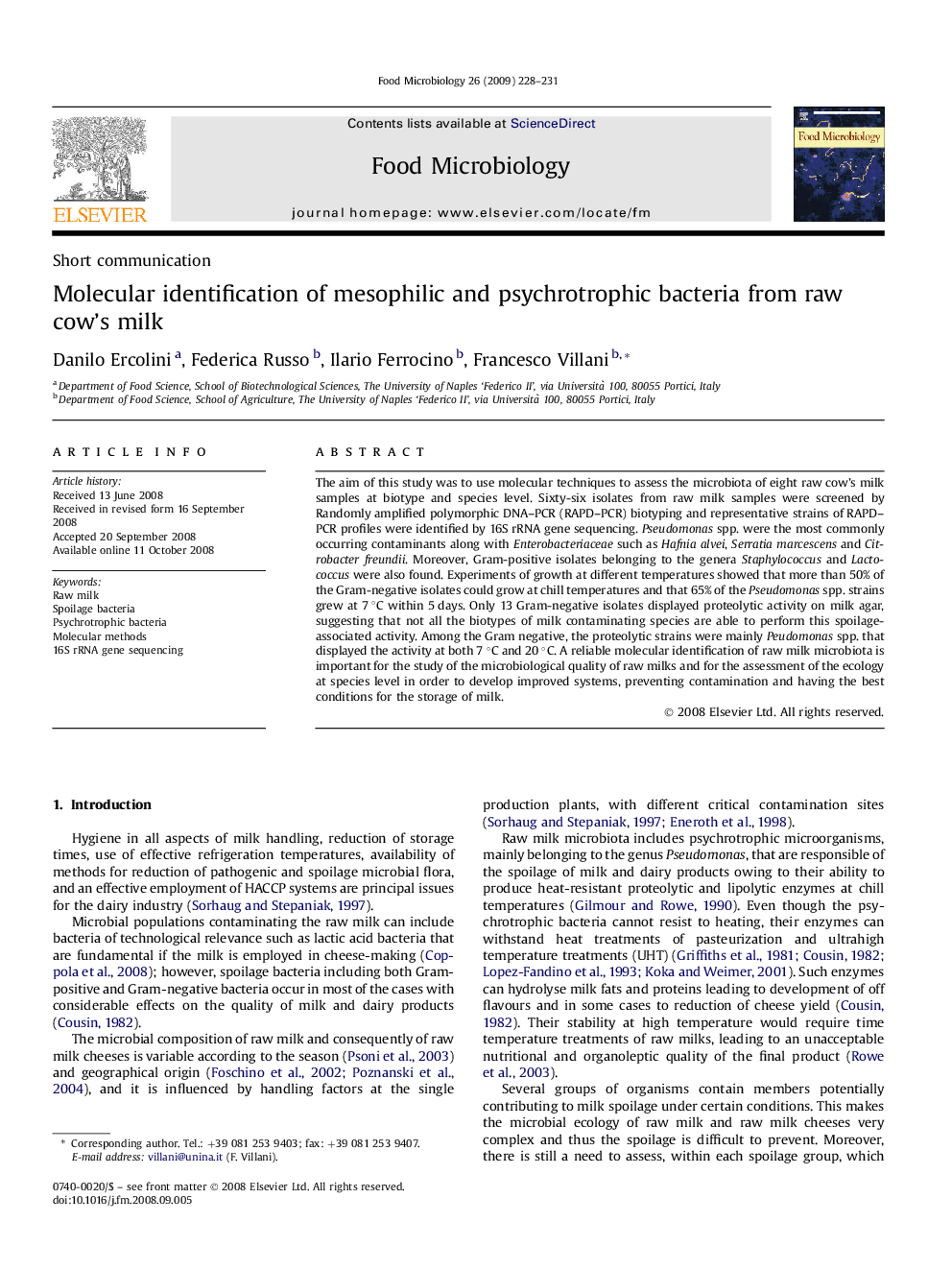| Article ID | Journal | Published Year | Pages | File Type |
|---|---|---|---|---|
| 4363639 | Food Microbiology | 2009 | 4 Pages |
The aim of this study was to use molecular techniques to assess the microbiota of eight raw cow's milk samples at biotype and species level. Sixty-six isolates from raw milk samples were screened by Randomly amplified polymorphic DNA–PCR (RAPD–PCR) biotyping and representative strains of RAPD–PCR profiles were identified by 16S rRNA gene sequencing. Pseudomonas spp. were the most commonly occurring contaminants along with Enterobacteriaceae such as Hafnia alvei, Serratia marcescens and Citrobacter freundii. Moreover, Gram-positive isolates belonging to the genera Staphylococcus and Lactococcus were also found. Experiments of growth at different temperatures showed that more than 50% of the Gram-negative isolates could grow at chill temperatures and that 65% of the Pseudomonas spp. strains grew at 7 °C within 5 days. Only 13 Gram-negative isolates displayed proteolytic activity on milk agar, suggesting that not all the biotypes of milk contaminating species are able to perform this spoilage-associated activity. Among the Gram negative, the proteolytic strains were mainly Peudomonas spp. that displayed the activity at both 7 °C and 20 °C. A reliable molecular identification of raw milk microbiota is important for the study of the microbiological quality of raw milks and for the assessment of the ecology at species level in order to develop improved systems, preventing contamination and having the best conditions for the storage of milk.
